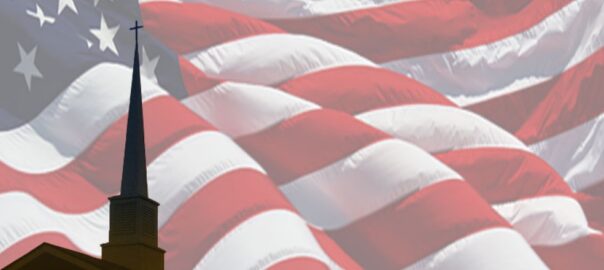
The American Experiment continues as a beacon of freedom in a world where billions live under oppression. Our founders and framers made many mistakes (especially retaining slavery and failing to start the road to emancipation, among others.). As the Bill of Rights was presented, the first sixteen words of the First Amendment changed history: “Congress shall make no law respecting an establishment of religion, or prohibiting the free exercise thereof…” For the first time among modern nations, there is no state religion and the federal government cannot interfere in freedom of conscience or faith. This is NOT a prohibition of religious influences in politics or public speech. The “wall of separation” Jefferson affirmed in later writings was protection for religious communities, not divorcing faith from society.
The Church (and other religious communities) have enjoyed much favor for over two centuries. In the last half-century, secularizing forces have sought to limit Christian influences from public institutions. Christians have felt marginalized and persecuted as the civil consensus has devolved from universal affirmations of reverence of God and moral absolutes to a fragmented, pluralistic competition among narratives and “truths.” Many academic and political elites view Christianity as belonging in the rearview mirror of history.
Biblical believers in America and the West find themselves in a similar place to the Jews who were exiles in Babylon in the 6th century BC, and later established small enclaves in Judea and throughout the Mediterranean world under multiple empires. Although limited in direct political power, Jewish communities and leaders exercised significant influence in economic, political, and social circles for centuries. The stories of Daniel, Esther, Ezra, and Nehemiah, along with historical narratives outside the Bible all affirm these positive influences.
This current moment offers the opportunity for the Church to be a different voice than the polarized political powers or the amoral and anarchistic cultural “influencers.” Though we have less direct influence, the commissioned and empowered members of local churches can be “salt and light” in their arenas of work and play, influence and service. Just as the Jews were purified from their idolatry through divine judgment, perhaps this moment will help Christian believers recover the depth and breadth of God’s kingdom and become effective witnesses in deed and word.
